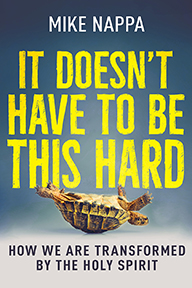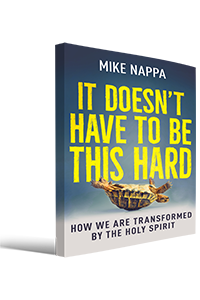A Marketing Team reason for rejection
One of the hard facts of life is that past experience influences present expectations. That means you are often judged by the failure of people who came before you, regardless of whether or not that judgment is fair.
Robert Cialdini, professor of psychology and marketing at Arizona State University, explains it this way:
If you are asked to pick up a ten-pound weight in a gymnasium, it will appear lighter if you had first picked up a twenty-pound weight and heavier if you had first picked up a five-pound weight. Nothing has actually changed about the ten-pound weight—except your perception of it. This psychological process is not limited to weight; it holds for almost any type of judgment you could make. In every case the perceptual process is the same: Prior experience colors perception.
Few things color a Marketing VP’s perception more than failure. In the high-pressure world of publishing, every perceived failure in promoting a book carries with it the threat of a lucrative marketing career cut short. Someone still smarting from that kind of recent failure is unlikely to do anything that might bring the same results again.
So, if you come to my publishing house with your great new idea about the joys of deep sea fishing, my Marketing VP is going immediately to think about all the wasted time, money, and effort his team spent on last year’s book about fly fishing. And he’s going to start shaking his head at the mere thought of possibly going through that again.
“We tried that before,” he’ll tell me. “Didn’t work. What else you got?”
No, it’s not entirely fair. But the rejection letter you get is the same anyway.
What You Can Do About It
1. Justify your target audience.
Following the suggestions included back at Reason #6 will help you with this, but the main idea here is to target an audience that is both clearly identifiable and of significant size to support a book’s publication. Then show how and why that audience will absolutely want your book—even if they didn’t want a similar book in the past.
If you can use demographic statistics here—for instance, the number of deep sea fishermen and women in the United States or the annual sales figures of the deep sea fishing industry as a whole—that certainly helps my Marketing VP reframe his experience in terms of your potential. Add on ways you intend to help your publisher reach that audience—say through speaking at the National Deep Sea Fishing convention, or by writing a column in Deep Sea Fishing Monthly magazine, or whatever—and you just might make my VP forget there ever was a fishing book before yours came along.
2. Differentiate. Differentiate. Differentiate.
Remember, you’ve got to be able to show that your book is uniquely positioned for success in the marketplace anyway. If you do a good job of that up front, then it could be irrelevant that my marketing team failed on a previous book because your book is so much more prepared to make an impact in the market.
If you still feel fuzzy on this, go back and re-read Reasons 45, 46, and 47 until you could teach a seminar on that topic alone. Trust me, it’s that important.
3. Find a company that’s more successful in the areas you want to sell.
In the big picture, a publisher that has trouble selling books similar to yours may not be the best place for you to land anyway. After all, an attitude of failure toward a certain topic or category of books can often become a self-fulfilling prophecy. “We’ve never been successful with these kinds of books in the past, so why try to be successful with this book in the future?”
A Marketing VP who turns down your book because of past failures with a similar one may actually be doing you a favor. That VP is giving your book an opportunity to succeed with a different publisher that knows how to sell in that area.
So if you find yourself getting rejected because of someone else’s bad experience in the past, take it as a gift instead of a curse. Do a little more homework and find a company that’s better equipped to contribute to your book’s success. It may all work out for the best in the end.
Looking for more? Check out these links:










